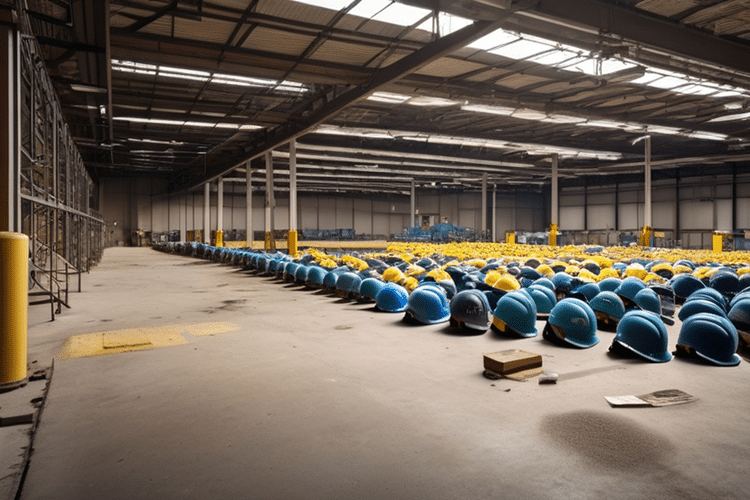
4 Things You Should Know About Selling CBD
Do you know that by 2030, the famous CBD industry is projected to hit $59.3 billion in sales? While CBD (Cannabidiol) is one of the most argued and popular matters of debate, the ingredient is used in a variety of products, ranging from cosmetics to edibles and tinctures, purported to have health and therapeutic benefits.
However, despite the boom, selling CBD products and running its successful business come with many complexities and legalities. Also, besides all of the standard issues faced by small business owners, CBD sellers are required to contend with various challenges, from bans from payment processors to even regulatory loopholes.
So, if you are too involved in selling CBD or wish to own this lucrative business, read on. In this article, we will discuss the four things you should know about selling CBD that will help you scale your business and avoid challenges by keeping the critical considerations and regulations in check.
Without further ado, let’s get started!
Table of Contents
CBD Payment Processing
Most CBD sellers have indeed faced challenges in obtaining a merchant account, but it is an important consideration for your business’s success. When you accept card payments using a full-featured CBD merchant account, it not only boosts sales and attracts new customers but lets you securely accept CBD payments online.
Previously, one of the most common challenges faced by CBD sellers involved ‘unsubstantiated’ health claims. It means that if your offered product makes a health claim not verified by FDA, it is likely to fall into the ‘pseudo-pharmaceuticals’ category, indicating an unapproved prescription drug that claims to offer the benefits of a prescription drug. Thus, obtaining a CBD merchant account with a product making such claims was more difficult.
Similarly, CBD oil was once considered high-risk by all banks and processors. While a few banks still consider the CBD industry high risk, many have opened their doors and no longer consider these merchants risky. Also, with the increase in CBD product demand and changes at the federal level, CBD payment processing has become mainstream.
Sourcing CBD
It is essential to carefully source CBD with verified laboratory testing and from reputed sellers. Some business owners hold the expertise to grow hemp plants on their own. Conversely, others usually purchase the product from a renowned seller and prefer avoiding the problems associated with crop management. Once the plant is purchased, sellers outsource the CBD oil extraction to another company or extract it at home.
However, being a CBD seller and before choosing your supplier, you should be aware of the supplier’s CBD oil manufacturing process. It is because some sellers derive the product using hemp seeds. These seeds contain significantly less CBD than the stalk and leaves of the plant. Therefore, when buying oils, ensure the supplier provides accurate levels of CBD, THC, and other ingredients in the product. Also, if the certificate of Analysis (COA) is unavailable on the seller’s website, ask for it from the testing lab.
Similarly, when you understand the intricacies involved in CBD sourcing, you can either go with CBD isolate or a full-spectrum CBD depending on your preferences. Remember, CBD isolate is a concentrate with no other terpenes or cannabinoids than CBD and helps create a plant’s aroma, flavor profile, and specific effects. Whereas full-spectrum CBD contains other terpenes and cannabinoids, providing an ‘entourage effect’ with better results.
Legal Regulations and Status
As a CBD seller, you must understand CBD’s legal landscape in your specific jurisdiction. The legal status of CBD varies significantly from region to region, resulting in diverse regulations and rules.
For instance, back in 2018, the commercial production of hemp was legalized in the U.S. through Farm Bill. The bill legalized the sale of hemp-derived CBD products and industrial hemp farming. Currently, FDA regulations are still changing, leaving the CBD business industry in a gray area about the upcoming changes in regulations and forbidden practices. Thus, staying informed about the legality of CBD within your country or state is paramount to your business’s success. Compliance with local, state, and federal regulations ensures you navigate legal complexities and operate within established boundaries.
On the other hand, failure to meet these regulations, such as not complying with the customer’s age limit restrictions, can lead to legal complications, potential fines, and business disruptions. Therefore, a comprehensive understanding of CBD’s legal framework is essential for responsible and sustainable business practices.
Limited Research, Marketing and Medical Claims
When you run a business selling CBD products, you often come across or confront challenges related to limited scientific research, let alone making health-related claims. For instance, CBD sellers cannot make claims about their products more than vague comments in general. Similarly, they cannot promote their products using words like aid, relieve or enhance and must provide the FDA disclaimer on their product labeling as well as website.
Thus, this leaves sellers in a position where providing accurate information and achieving marketing objectives can be difficult. A seller cannot make claims that lack substantial support, which necessitates a commitment to transparency and responsible communication with consumers. Similarly, social media advertisements run by such businesses must avoid making false claims as it can put the seller at risk for account suspension or, even worse, a complete ban.
Likewise, you can use different platforms like Instagram or Facebook to advertise your hemp-based topical products, and you cannot mention CBD in your advertisement anywhere on your website or your product labels. Thus, being a seller, make sure to align your marketing objectives with the current state of scientific research to avoid making misleading claims. This will not only help you build long-term business credibility but ensure ethical practices in today’s competitive CBD market.
The Final Words
If you are selling CBD products or want to grow this business, then you need to be aware of the challenges faced by the industry. From understanding the source of CBD extraction, complying with state regulations, and aligning marketing objectives with limited research to acquiring merchant accounts, these are some of the many things that will help you survive in today’s ever-evolving and highly-regulated industry.
Remember, the growth potential in the CBD industry is tremendous. So make the most of the above-discussed information and position your business to take advantage of this emerging market for years to come.






